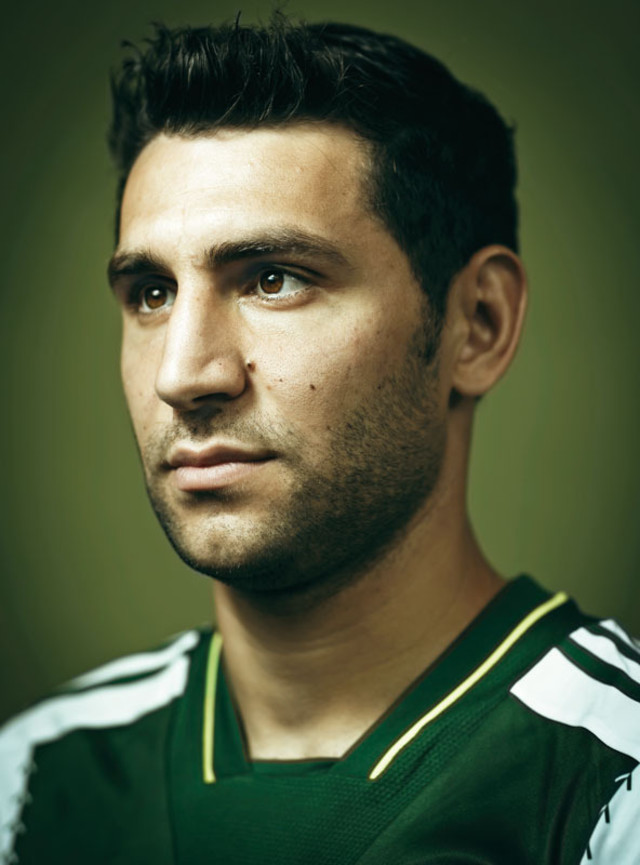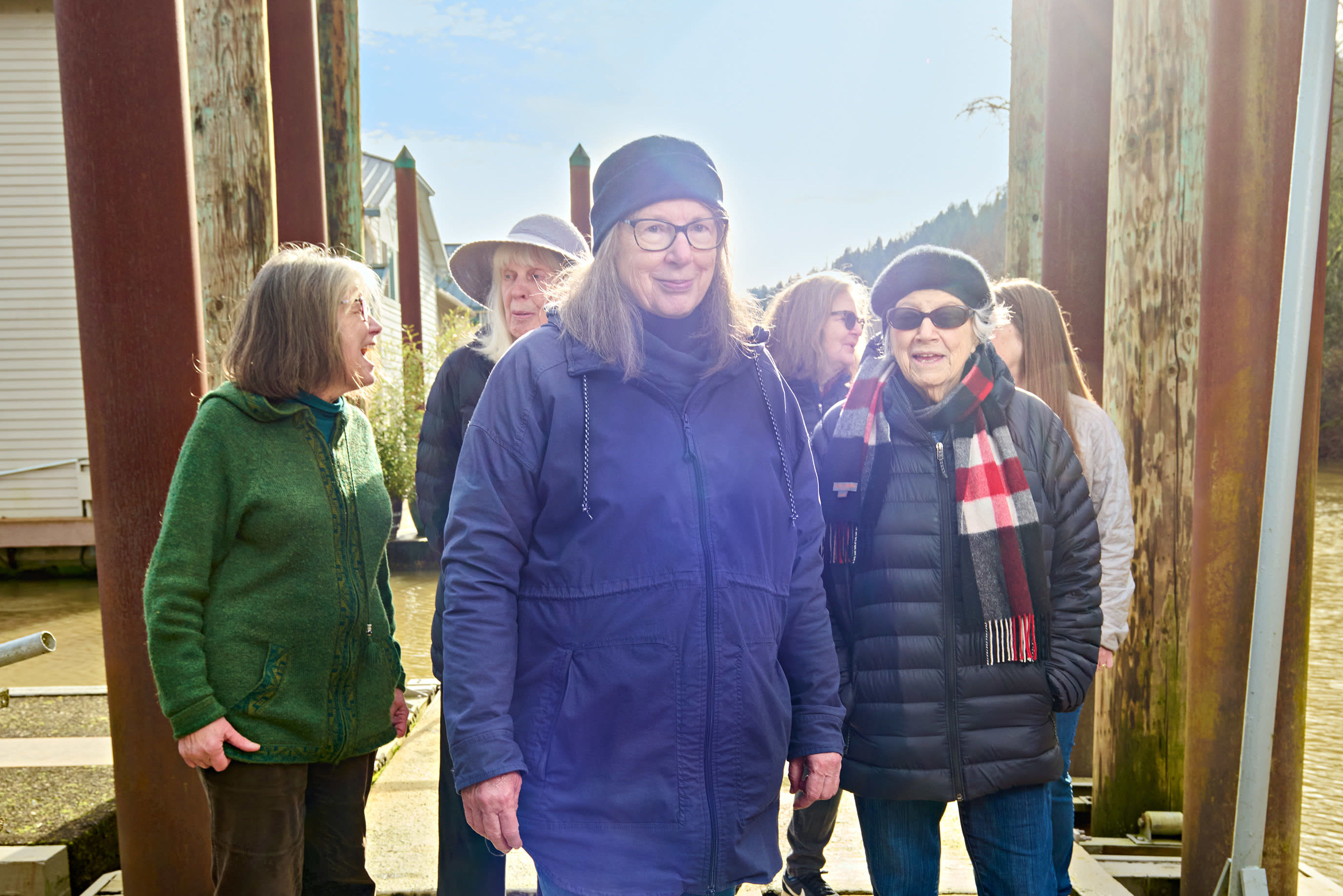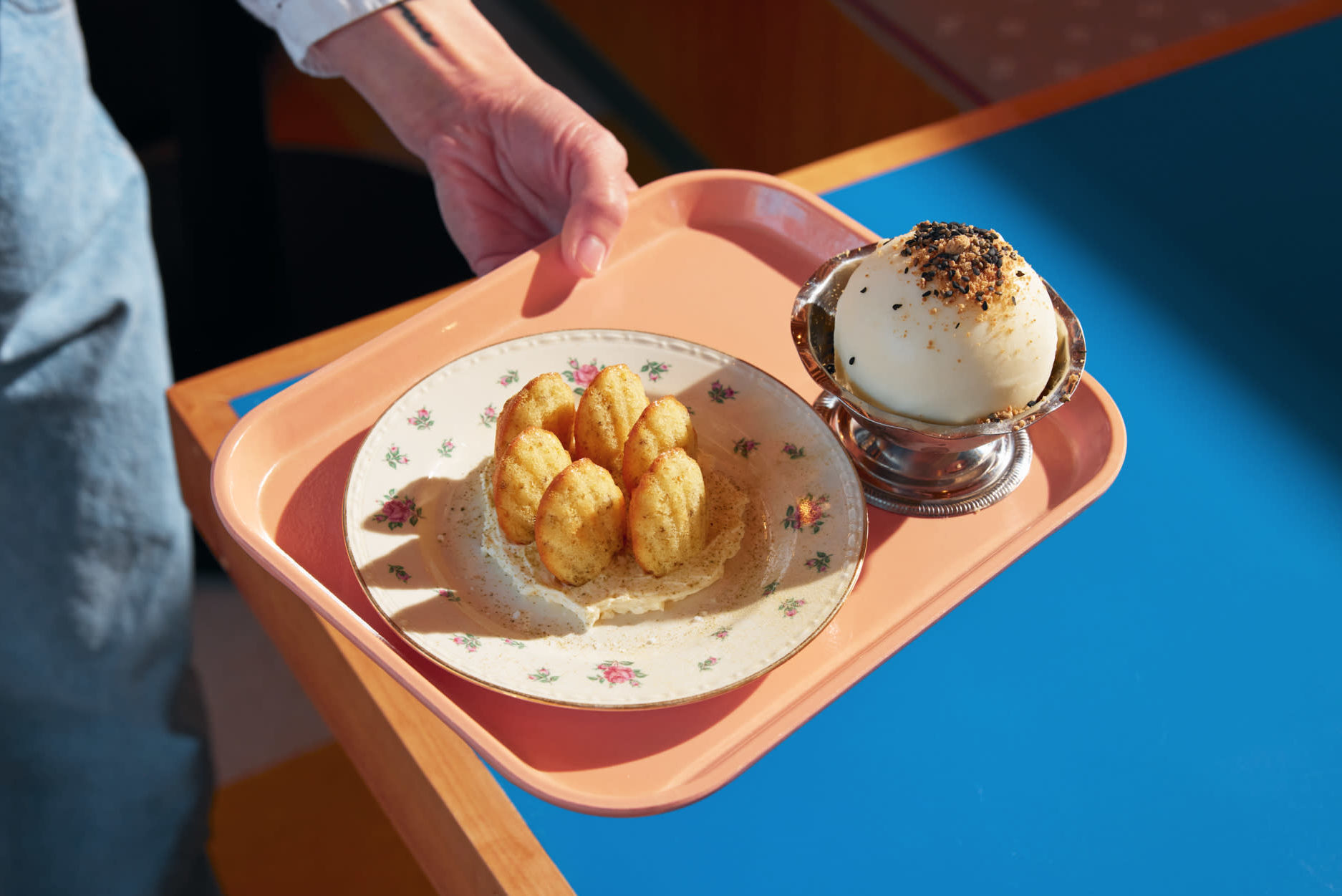The Story of Timbers Playmaker Diego Valeri

Portland Timbers midfielder Diego Valeri, son of a shoe factory owner, joined his hometown soccer club in Buenos Aires’s sprawling suburbs as a teenager. He developed into a “playmaker” with a mind as deft as his feet, able to unlock opposing defenses with a single pass. After stints in Portugal and Spain, he arrived in Portland in January to help rescue the Timbers after an abysmal 2012. As the season in which he scored some of Major League Soccer’s most spectacular goals heads for its climax, Valeri reflects (without a translator) on his sport, his team, and his adopted home
In Argentina, we are born and our fathers give us a ball. Soccer is cheap to play—we were 20 persons with one ball. That’s it. Here, you have the culture of basketball, baseball, college sports—that is your history. Soccer is just starting to be famous, and to show America what the sport is, so I think this will change over the next few years.
Before we came to Portland, we thought the weather was worse. Rain and cold—the people cold and distant, too. But we made a mistake with that. My wife is happy. My daughter is happy now. We love Portland; it’s amazing. The people are super, how do you say, agradable, friendly. You have green spaces. The city is quiet. We can live normally here. In Argentina, it’s dangerous for everybody. We have 40 million people, and 25 million live in Buenos Aires.
Portugal is different than Spain; Spain is different than Argentina and the USA. But I think that the Timbers’ stadium, our people, our fans, are special. Every single match they are singing, 90 minutes, and it’s a party. It’s a fiesta. It’s crazy. To play at home, for me, I enjoy it 90 minutes, before and after.
Before I arrived here, I didn’t speak any English. I’m trying to learn every week, every day. We have a teacher. She comes to my home. It’s hard, because you’re playing, and you’re tired, and then you come home to class. The most important “class” is the locker room. Everybody on the team speaks different English. Andrew Jean-Baptiste [born in Brooklyn] speaks different than Darlington Nagbe [born in Liberia, raised in Cleveland]. Jamaican guys, Costa Rican guys—very different.
Language is important for a soccer player, because you move all the time. For me, I enjoy that—the travel, learning. It’s good for me. Now to play, and to work in another job in the future. We are very lucky.
You play like you live. Nothing is separate from football. I like to read philosophy and theology—“theology” is a correct word?—because I am Catholic. I also like to read science…. I just like to read. To read is good, because you can make a difference by thinking. In a game, I think one player touches the ball for only one minute. But for 89 or 90 minutes, you’re thinking. You think, think, all the time, to see into the field, to see the space and the players. So reading is good for the intellect.
In the Los Angeles game, I went to the corner, to the ball, just thinking, OK, OK—a good corner. Just make it a good shot in. There is no plan—you cannot plan this. You just try to make it a good corner. But I went with faith. And Drew, he hit the ball with maybe part of his head, part of his shoulder, and it went in. This is soccer. You can score in the 94th minute. You don’t know what will happen.




